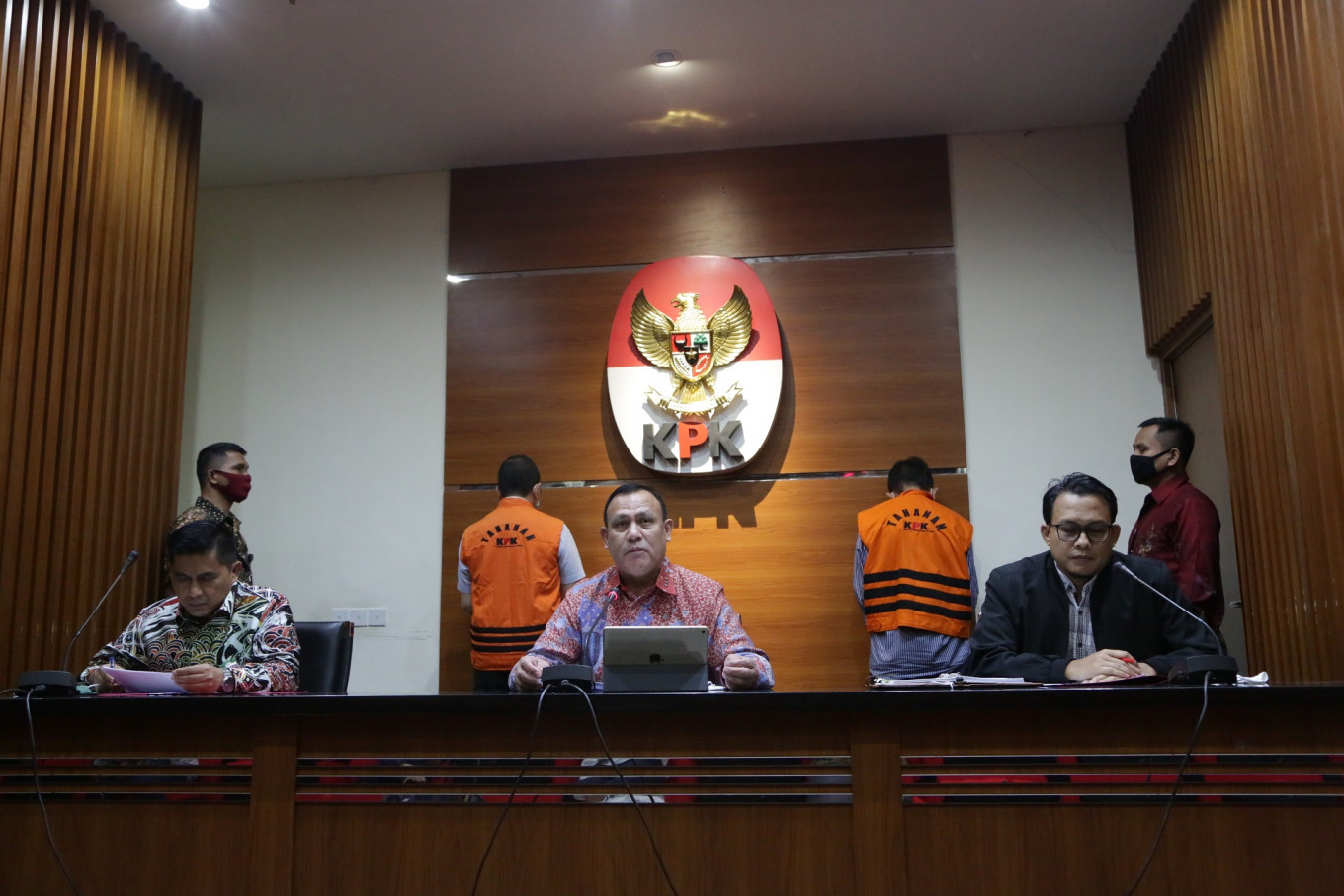Popular Reads
Top Results
Can't find what you're looking for?
View all search resultsPopular Reads
Top Results
Can't find what you're looking for?
View all search resultsLet the record show
As the clock ticks toward what is certain to be a heated election year, the time is now for the government to take real action and create an environment in which corruption cannot thrive, and in doing so, finally set down this administration's antigraft legacy.
Change text size
Gift Premium Articles
to Anyone
Last week, President Joko “Jokowi” Widodo reiterated in strong terms that he had never tolerated corruption.
It was a strange yet necessary message to send early on in what is certain to be a heated political year, following the release of the latest Corruption Perception Index (CPI) by Transparency International at the end of last month.
Indonesia’s score slid four points to 34, the country’s biggest decline in 25 years and one of the worst year-on-year performances in the region.
This year’s CPI, unlike the previous seven published throughout the Jokowi era, was important in driving a sustained conversation about the antigraft movement, already beaten to death by politicking from within the annals of power, as some might say.
Two weeks since, people are still talking about the decline in Indonesia’s CPI score, even after the government defended its actions and attempted to flip the script that had purportedly led to the poor performance.
It is true that the country has been struggling for decades to rid itself of corruption. But as the CPI suggests, the Jokowi administration has failed to make any meaningful progress and has even obliterated most of the advances it had made so far.
One of the reasons for this failure is that corruption is so ingrained in the country’s political and business cultures that those in positions of power often benefit from the status quo and have little incentive to change it.
For one, there is no clear solution to getting rid of money politics come election season. If the recent debate on secret campaign funds is credible, then politicians are still treating it as a matter of course.
Any proposed solutions, including the suggestions Coordinating Political, Legal and Security Affairs Minister Mahfud M.D. made in response to Indonesia’s CPI score, place too much emphasis on tweaking regulations.
To believe that corruption is a victimless crime that can be tolerated to grease the wheels of the economy comes at a high human cost, ignoring the devastating impact corruption has on ordinary people.
For Jokowi, it is not enough to say he does not tolerate corruption. If the President is a man of his word, he and his government must continuously prove their commitment to eradicating corruption.
One upcoming opportunity he can seize is to support the General Elections Commission (KPU) in watching the Constitutional Court make good on its stance that former graft convicts are barred from running for public office for a certain time after their release.
A number of high-profile graft convicts were granted parole in previous years, many with ties to political parties within the ruling coalition as well as government institutions.
When the final list of those in running in 2024 is finalized, people don’t want to see the names of any bad apples return.
Jokowi must take decisive action to combat the culture of complacency in which the public, and even investors, have come to accept corruption as a fact of life in Indonesia that cannot be changed.
That means creating a culture in which corruption is no longer tolerated and citizens are encouraged to speak out and hold people in power accountable. In order to accomplish this, the anticorruption laws must be enforced and the institutions responsible for investigating and prosecuting corrupt officials must be strengthened.
The results of sting operations, for instance, prove that the Corruption Eradication Commission (KPK) works. They should not be taken as a mere reflection of how prevalent corruption is and the institution shamed.
If fixing it is the goal, don’t discourage sting operations. Discourage corruption.
If the government wants to build a brighter future for the country, it must create an environment in which corruption is no longer acceptable.
The President, or any of his aides or subordinates, can say all they want about their commitment to combating corruption.
Let the record show that the administration’s only legacy thus far has been to undo much of the antigraft movement.











